This 60-year old cold brew method is the best way to brew – here's why
It's stood the test of time and I can see why
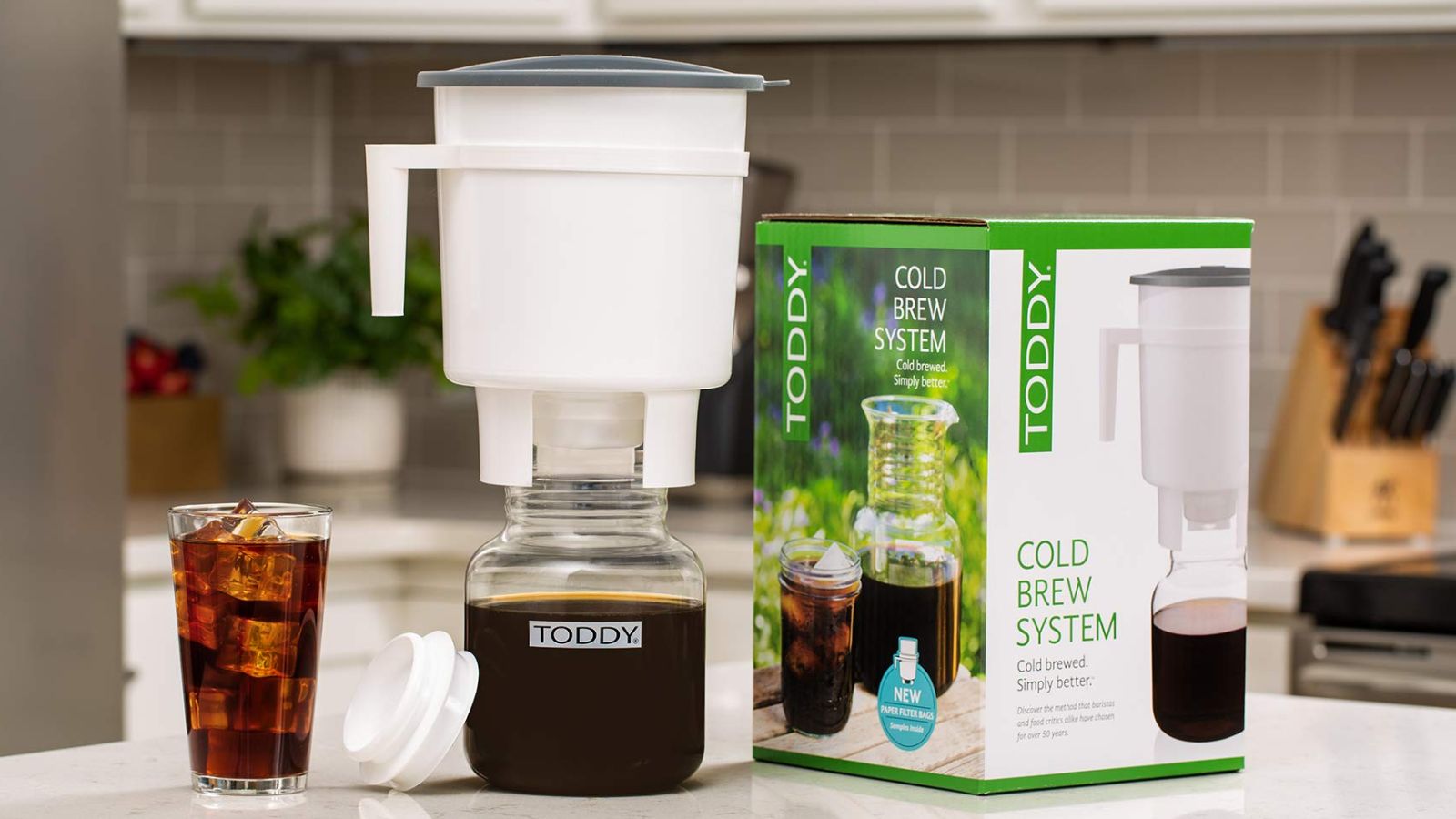
Toddy has dominated the cold brew coffee scene since the 60s and it shows. The process is simple and your cold brew will be perfect. It's a slow brew, but the results make up for it.
-
+
Makes the best cold brew
-
+
Very simple to use
-
+
Useful storage features
-
+
Can make large quantities
-
-
Slow process
-
-
Plastic parts feel cheap
-
-
Quite a large decanter
You can trust Homes & Gardens.

Anyone who has done research into cold brew coffee will have seen that the original way to make it is using the Toddy Cold Brew System. Back in the 1960s, Todd Simpson, a Cornell chemical engineering student, tried to recreate the taste of the coffee he had tried in Peru. After perfecting the process, he launched his Toddy system.
I tested the best cold brew coffee makers on the market and the Toddy Cold Brew is easily at the top of the list. It's nothing elaborate, in essence, the Toddy system provides a brewing container, decanter, and filter. You could buy these parts at Walmart and make one for yourself, but they might not fit as well as Toddy's does and it'll take time and energy.
It's not the most attractive or the most speedy cold brew coffee maker, but it's worth the wait. It made the best-tasting cold brew of all the models on test. There's a lot to love about it.
Specifications
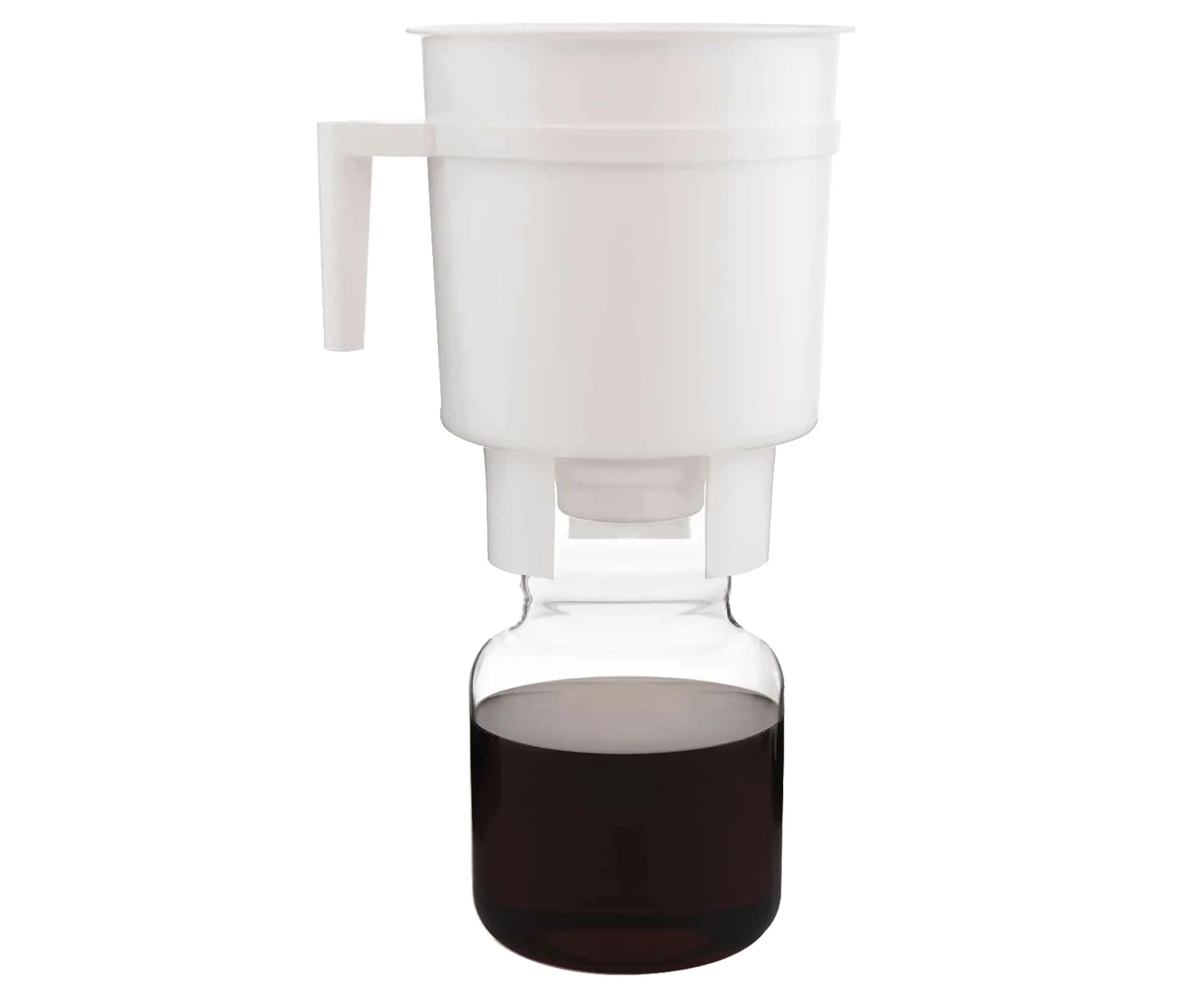
| Dimensions | 7.25 x 7.25 x 12.5 inches |
| Capacity | 1.1 liters |
| Weight | 670 grams |
| Material | BPA-free plastic and glass |
Unboxing
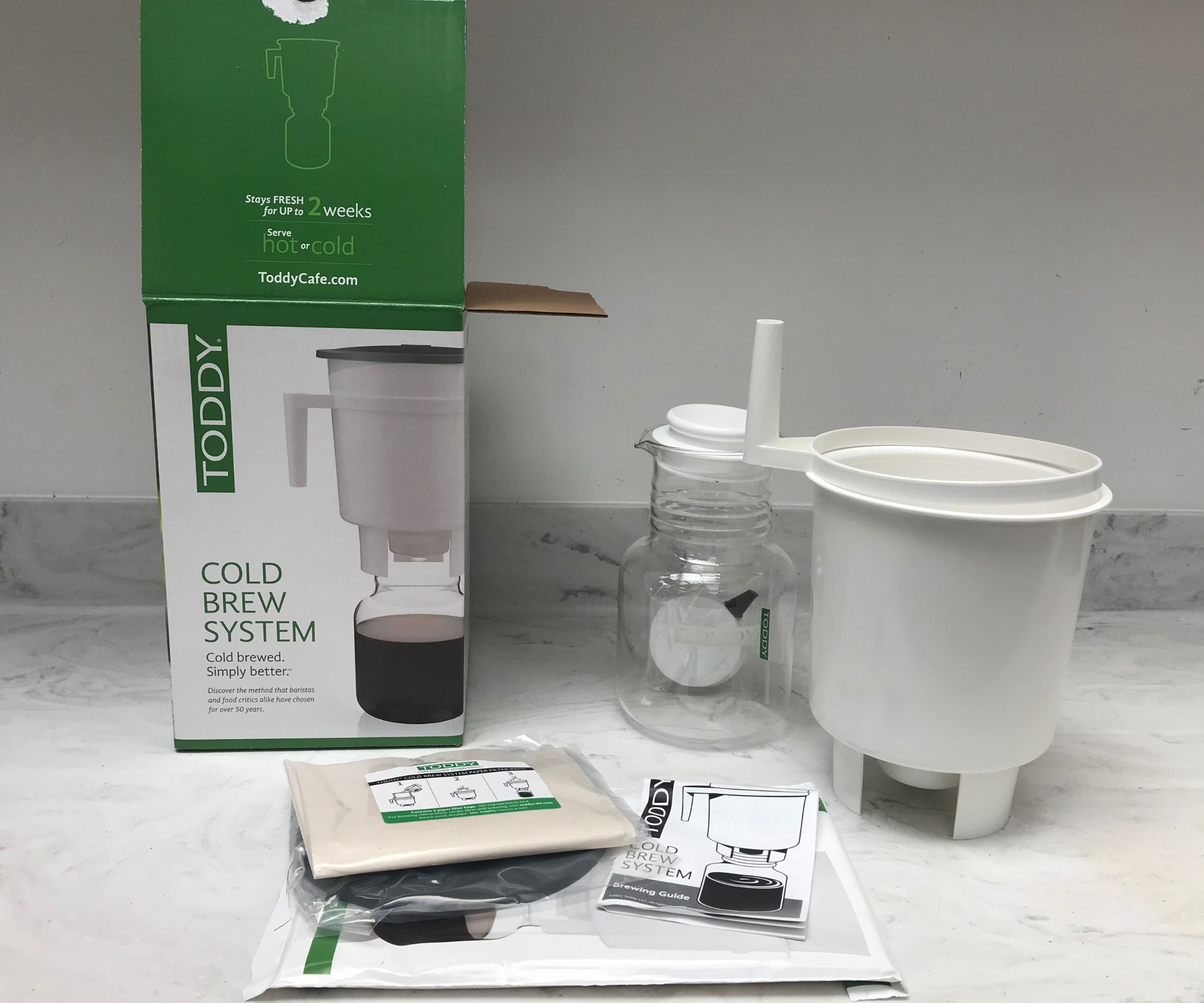
The Toddy System is simple to unbox. It doesn't come with much packaging beyond an easily recyclable cardboard box. There are a few plastic sleeves around the paper and felt filters, but they're for moisture protection. It's a good start from Toddy.
When everything was out of the box, there wasn't much to the Toddy System. There's a glass decanter, which you won't need until the very end, and a brewing container, which comes with a separate lid and handle. You'll also have a small silicone stopper, which you need to find a safe place for or you'll lose it and paper and felt filters. With minimal equipment, it's unsurprising that the process will be easy. It's also worth noting that Toddy sell each part separately, so if you happen to lose or break anything, they're very replaceable.
Who would it suit?
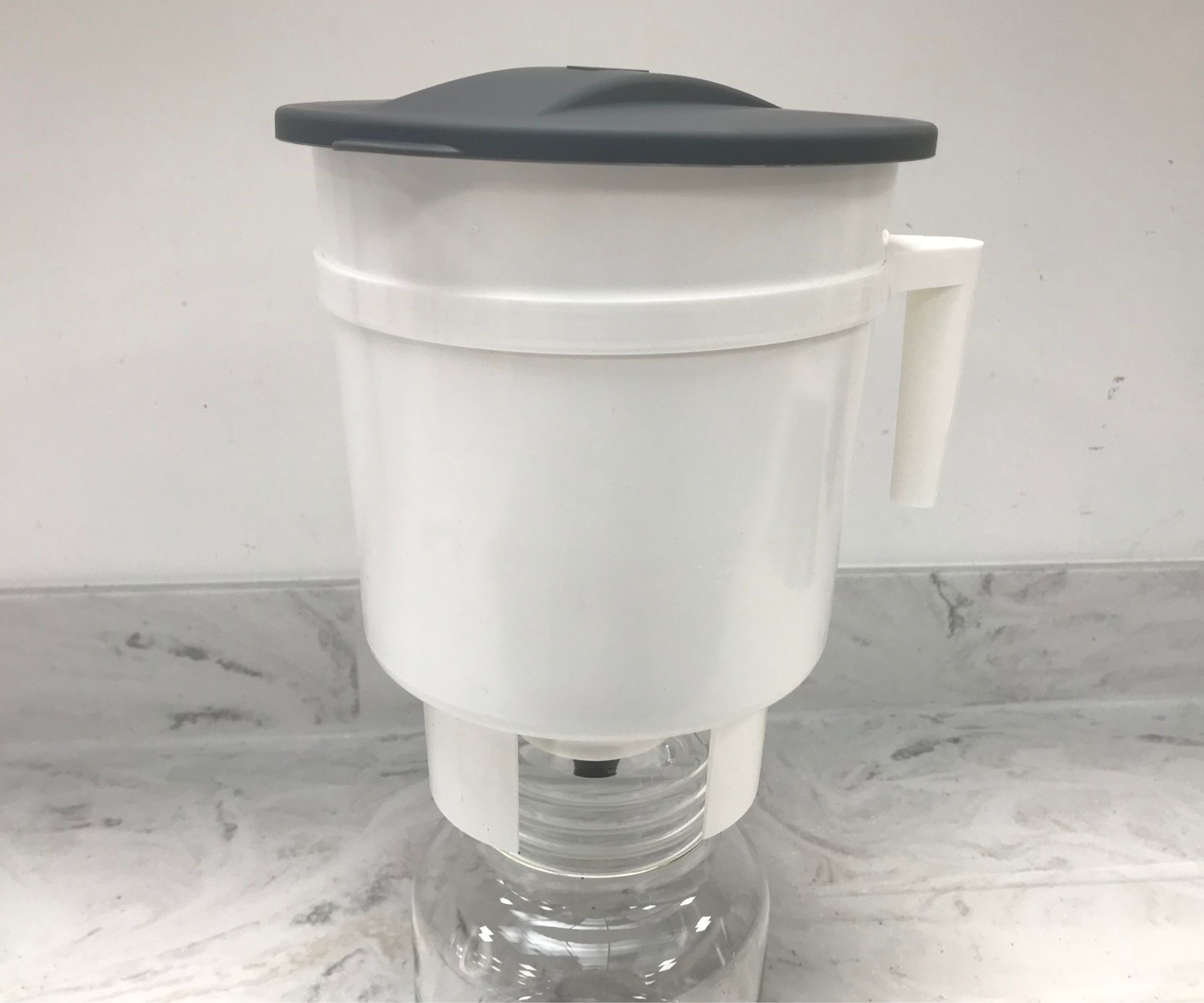
The Toddy system lends itself to a lot of cold brew drinkers. If you’ve made cold brew at home before, but you want to refine the process, this is a perfect stepping stone. If you want to make big batches of cold brew to store in the refrigerator, again, the Toddy System is an excellent option.
On the other hand, if you have a small kitchen or you would only make cold brew for one, Toddy's big decanter is overkill. You would be better off with one of the best French presses. The Toddy system looks and feels very practical too, so if you're after luxury, we'd recommend the KitchenAid Cold Brew Coffee Maker, available at Amazon.
Design expertise in your inbox – from inspiring decorating ideas and beautiful celebrity homes to practical gardening advice and shopping round-ups.
What is it like to use?
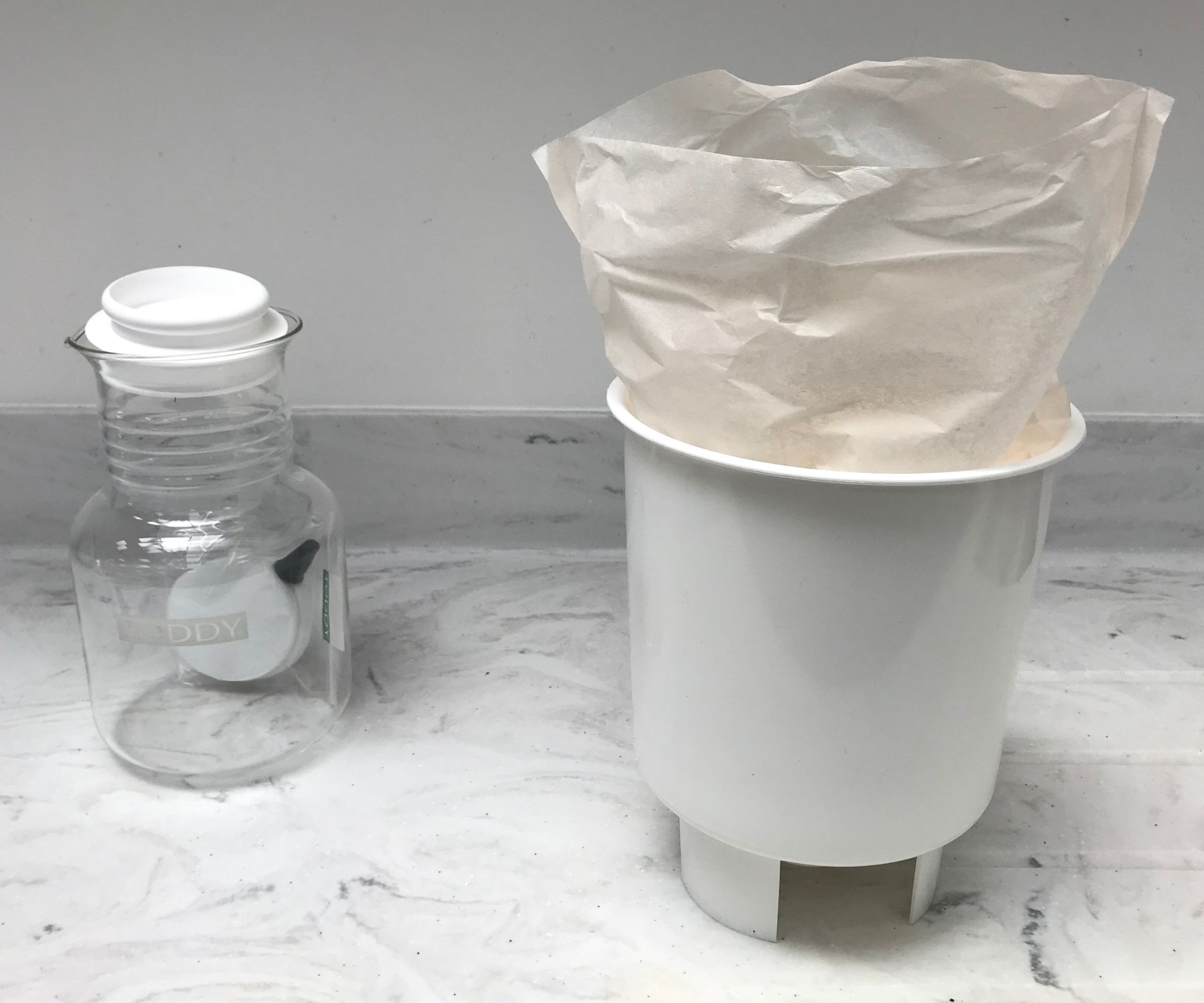
The instructions suggest two different methods: the classic or the dual filtration. These instructions are really clear, and they'll even tell you how to cold brew tea too.
I started with the dual filtration method, because I wanted my first cold brew to be ultra-smooth. The set-up is simple. I inserted the silicone stopper into the outside of the brewing container. Then, I wetted the reusable felt filter and placed it into the bottom of the brewing container. Mine felt like it was too big for the bottom indentation, but with a little pressure, it sealed the container well.
The instructions then recommend adding 12oz of ground coffee. I used an OXO grinder, which you can buy from QVC on the coarsest setting to make fresh grounds that were the optimum grind size for cold brew. I placed the coffee grounds into my filter bag, which was inside the container, and poured 56oz of room-temperature filtered water over the grounds. The instructions will tell you to stir your grounds to make sure that they're fully saturated, but fellow baristas have told me that this is unequivocally a bad idea. Stirring your grounds results in uneven saturation, risking a bitter cup of coffee. If you need to, use the back of a spoon and press down on your grounds gently. Ideally, you would pour your water in a spiral so that the weight of the water submerges them.
Once done, I twisted the top of the bag, put the lid on the container and left it in the refrigerator for 24 hours. You can leave it at room temperature, but I didn't want to over-extract my coffee. Once the 24 hours was up, I removed the silicone stopper and let my coffee drain into the glass decanter. This was a little messy, because my coffee started flowing out before I could get my hand out of the way, so make sure you have the glass decanter ready and over a sink.
The glass decanter has a lid, so you can store your coffee concentrate for up to two weeks without the taste being affected. I wanted to try it straight away, so I poured some of the coffee concentrate from the glass decanter. The handy lip on the rim of the decanter keeps the pouring process clean and simple. I used a 1:8 coffee concentrate to water ratio for my cold brew. It tasted perfect. It was very smooth, slightly sweet and not bitter at all. Without the acidity of a hot coffee, I could taste the nuttiness of my coffee really clearly.
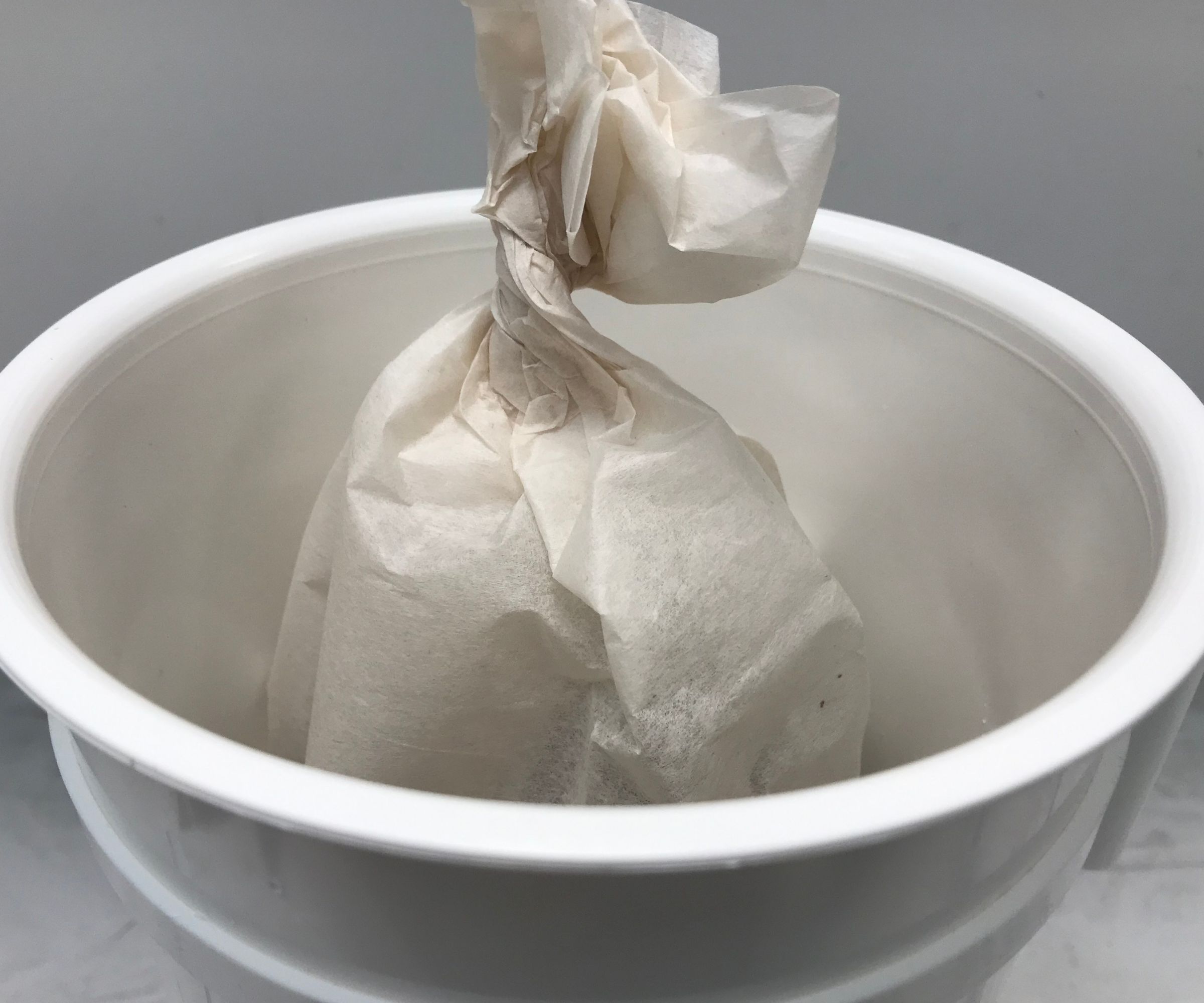
I tried the classic method too. This follows almost the same process, except rather than use the paper filter, you just combine one cup of water with 6oz of coffee. Then, you pour three more cups of water over the grounds. Then, add 6oz of coffee and three cups of water. The rest of the process is the same as the Dual Filtration.
I thought that this process was more fiddly, messy, and the coffee didn't taste as good. It was a little less smooth, but perhaps stronger. Overall, I'd go for dual filtration, but I would invest in a reusable filter like this one from Walmart to reduce my waste. I was curious to taste the coffee concentrate before it was diluted, so I poured a little into my mug. It's very very intense, so make sure to dilute it with water or milk. Overall, my coffee concentrate could make 14 servings, which is enough to last me two weeks. Thankfully, the glass decanter and lid make the perfect storage vessel.
Cleaning, Storage, and Maintenance
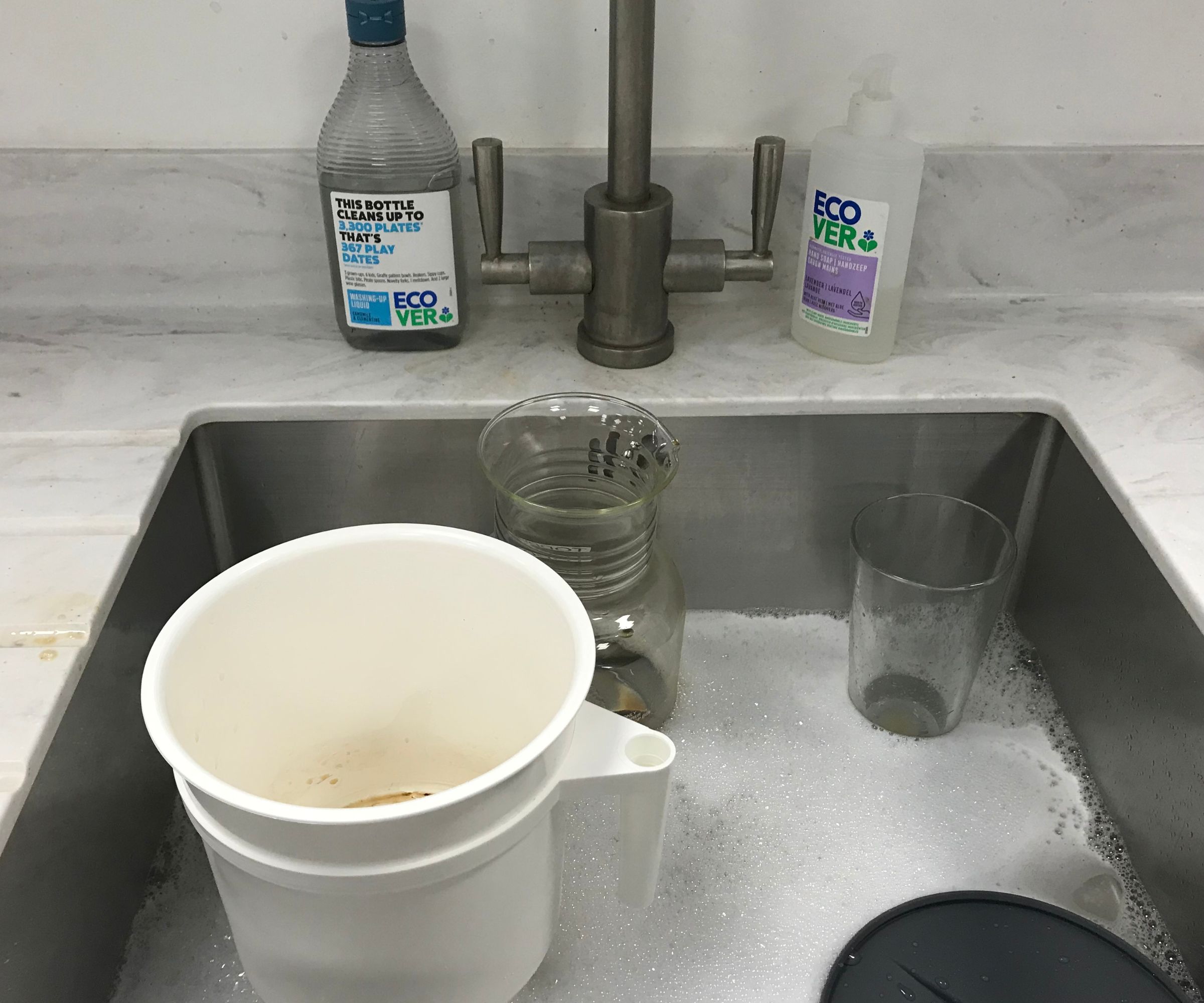
There's no motor, fine cogs, or small spaces that would make this tricky to clean and maintain. You can put all the Toddy parts in the dishwasher if you want to. I like to clean coffee components by hand, so that I know I've done a thorough job. I used Ecover dish soap, which you can buy from Walmart, since it's a gentle formula, and some warm water to rinse the plastic, glass and silicone.
The paper filter isn't reusable, so I had to put that in the food waste. Toddy recommends running the felt filter under running water to remove residue, then squeezing the filter to dry it and storing it in a resealable plastic bag in the freezer. This is a bit of a faff, but it saves an ongoing cost. When you need more Toddy felt filters, you can buy them from Toddy.
As for storage, it isn't the prettiest coffee maker. It's made of frankly ugly white plastic. You'll have to leave it on the side or in the refrigerator when you brew your coffee, so if you're precious about how your kitchen looks, this isn't ideal. In the refrigerator, the brewing container was quite tall, so you might need to adjust your shelf height and clear some room. When you aren't using it, although the apparatus is quite big, it's light and could easily stack into a cupboard.
How does it rate online?
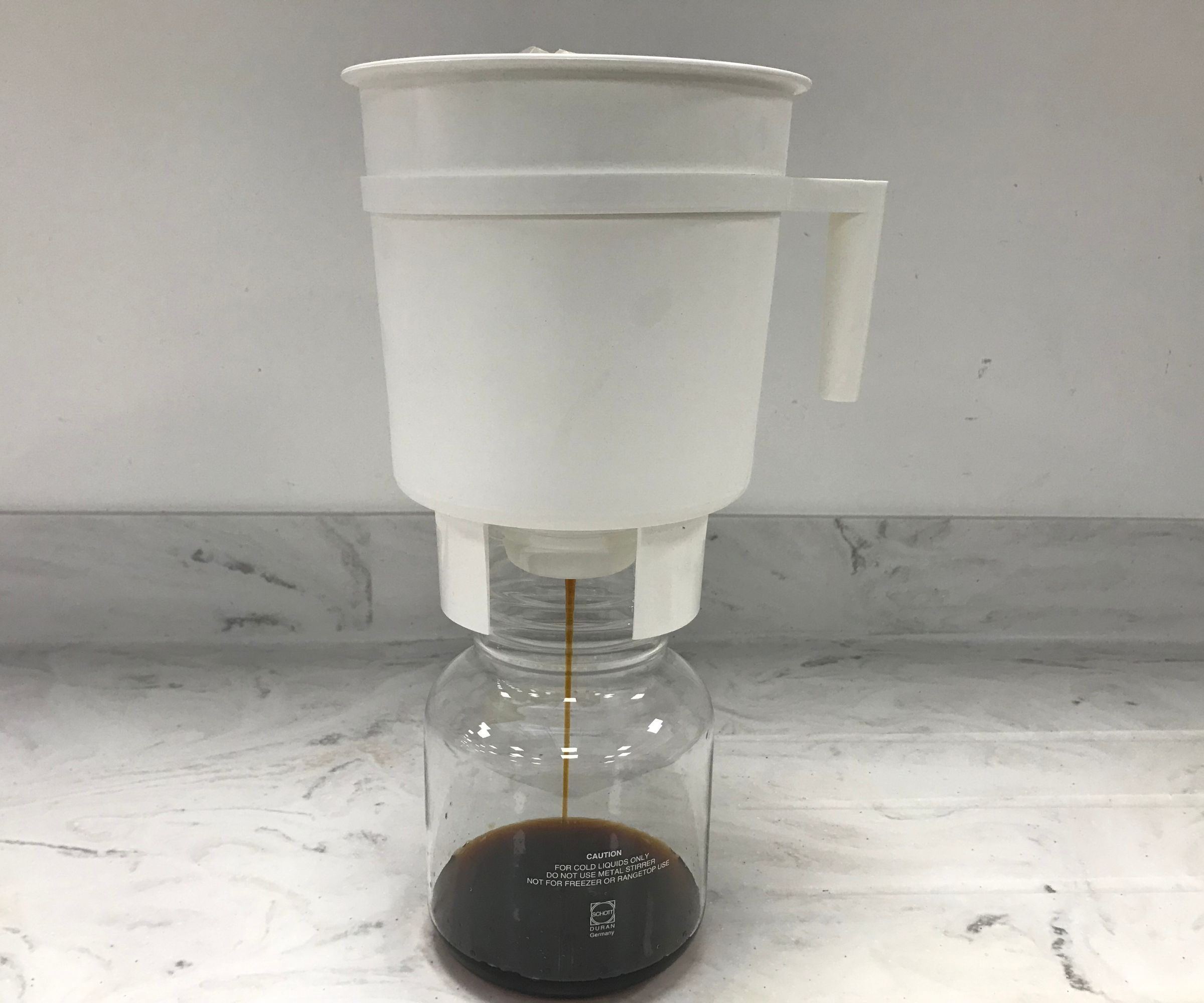
Reviewers are pretty clear that this is one of the best cold brew coffee makers available. The four-part appliance is easy to assemble and use. Everyone says that the flavors extracted in the slower 'Toddy' process are leagues above anything else. Had I not tasted it for myself, I would think that's a little hyperbolic, but they really are. For both flavors and functions, the Toddy scores full marks.
However, for what it is, lots of people also feel that it's quite expensive. For those targeting less expensive cold brew makers, a mason jar, available at Walmart and a coffee filter, also available at Walmart would do the job.
Lots of reviewers and customers found the rubber stopper removal could be messy, like I did. I saw quite a few reviews where things got really messy. The long extraction time is a little frustrating for impatient drinkers, but the coffee flavors are worth the wait. Nobody could fault the smooth coffee that this Toddy made. I found that lots of mixologists use it for their cocktails. It also goes without saying that as a coffee maker it's pretty limited. If you love cold brew, this is great; if you want other styles of coffee, you're out of luck.
How does it compare?
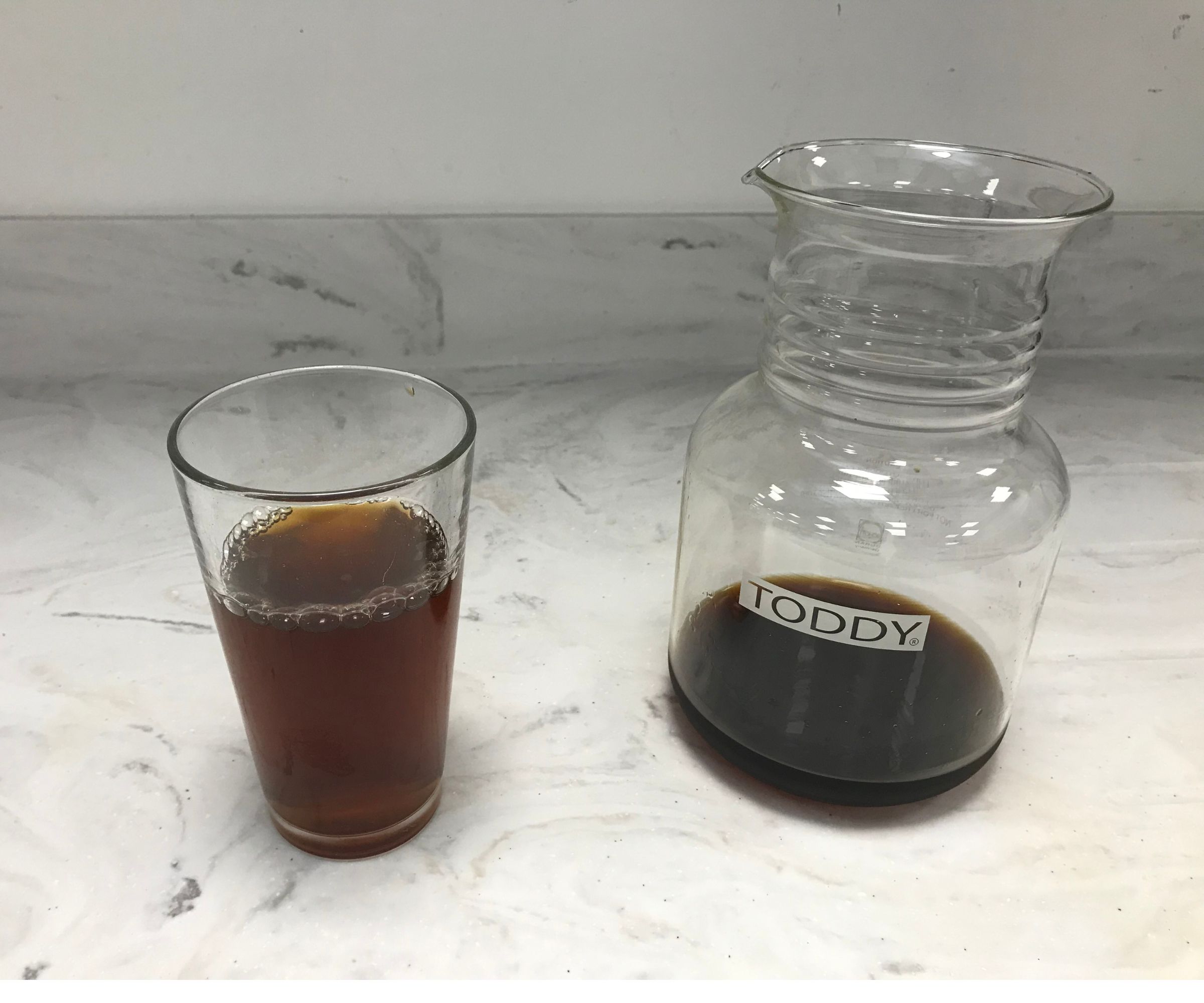
Whilst the Toddy made a delicious cold brew, it wasn't alone in its expertise. The OXO Good Grips Cold Brew Coffee Maker offers an almost identical set-up, but it's more stylish, compact, and generally feels more premium. OXO has even designed a showerhead to evenly disperse water over the coffee grounds, giving a more balanced flavor profile to the cold brew. You'd be forgiven for thinking that this would nudge the price of the OXO up, but it doesn't. In my opinion, it pips the Toddy to top spot in our guide to the best cold brew coffee makers, because it works almost identically, but looks better.
If you like the sound of the Toddy and the OXO, but you're short on space, I'd recommend looking at the OXO Brew Compact Cold Brew Coffee Maker. This, again, follows the same brewing and extraction process, but in a shrunk-down silhouette. You don't get quite the same value-for-money, but sometimes, if you have a smaller kitchen it's something you have to accept.
Should you buy it?
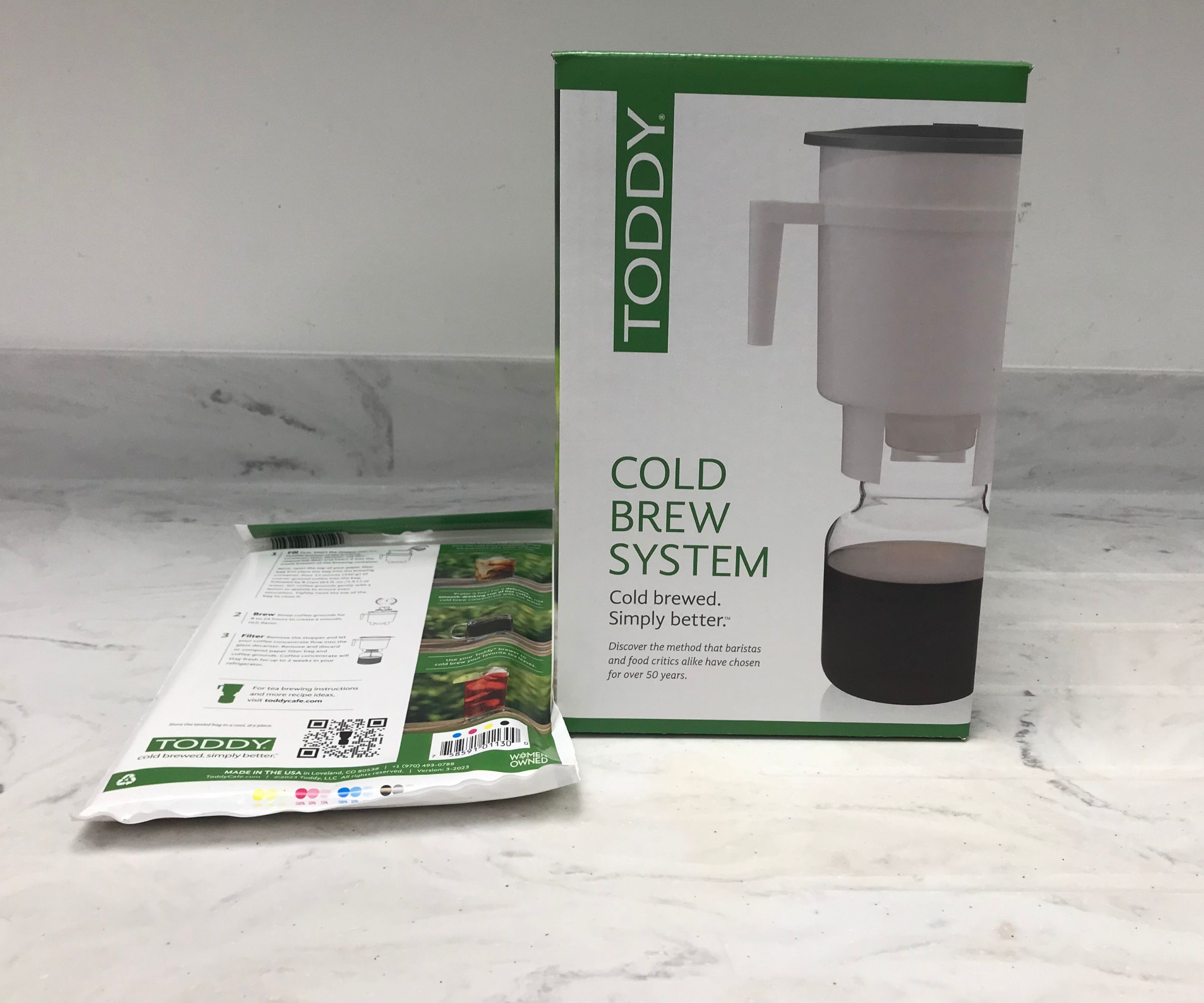
If you're passionate about cold brew, this is an excellent investment. It's on the expensive side, but it'll repay you with top-tier coffee. It can make a lot at once and has more than enough capacity to store it.
It might not be attractive, or feel super-premium, but its reputation speaks for itself. As a first purchase or treat for yourself, the Toddy is a great option.
How we test
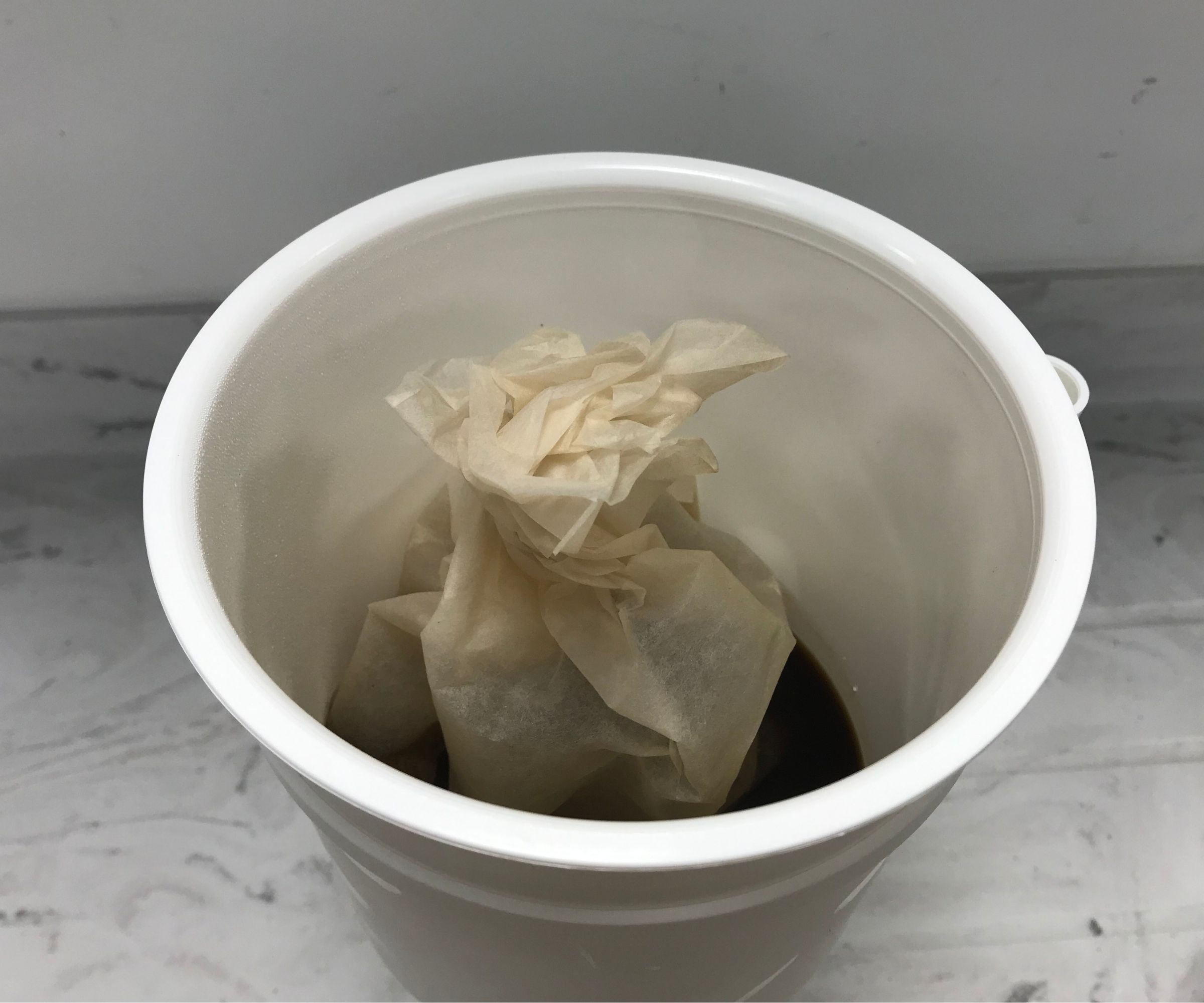
Before we review any coffee maker, we take it to our test kitchen. Here, our team of experts uses it like we would in a domestic environment. We test all of the features that the coffee maker boasts and much more. We'll make notes on value, unboxing, and cleaning so that you have a clear idea of what you'll be investing in.
We make sure to test the top models on the market so that we can compare their features. We're always fair on coffee makers and if we don't think they're worth it, we'll let you know. If you'd like to find out more, we have a dedicated page that covers how we test coffee.

Laura is our eCommerce editor. As a fully qualified barista, she's our expert in all things coffee and has tested over thirty of the best coffee makers on the market. She has also interviewed Q-Graders and world-leading experts in the coffee industry, so has an intimate knowledge of all things coffee. Before joining Homes & Gardens, she studied English at Oxford University. Whilst studying, she trained as a master perfumer and worked in the luxury fragrance industry for five years. Her collection of home fragrance is extensive and she's met and interviewed five of the world's finest perfumers (also known as 'noses'). As a result of this expansive fragrance knowledge, she always puts quality and style over quantity and fads. Laura looks for products which have been designed simply and with thoughtful finishes.